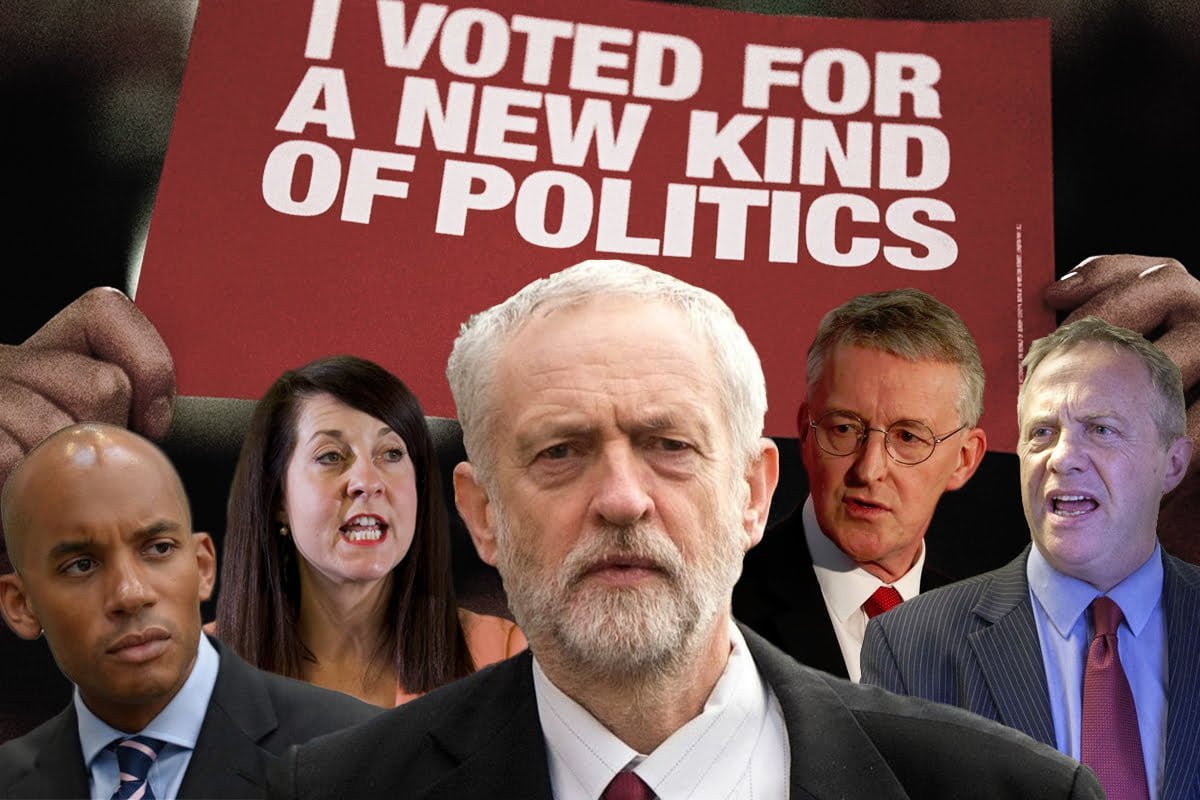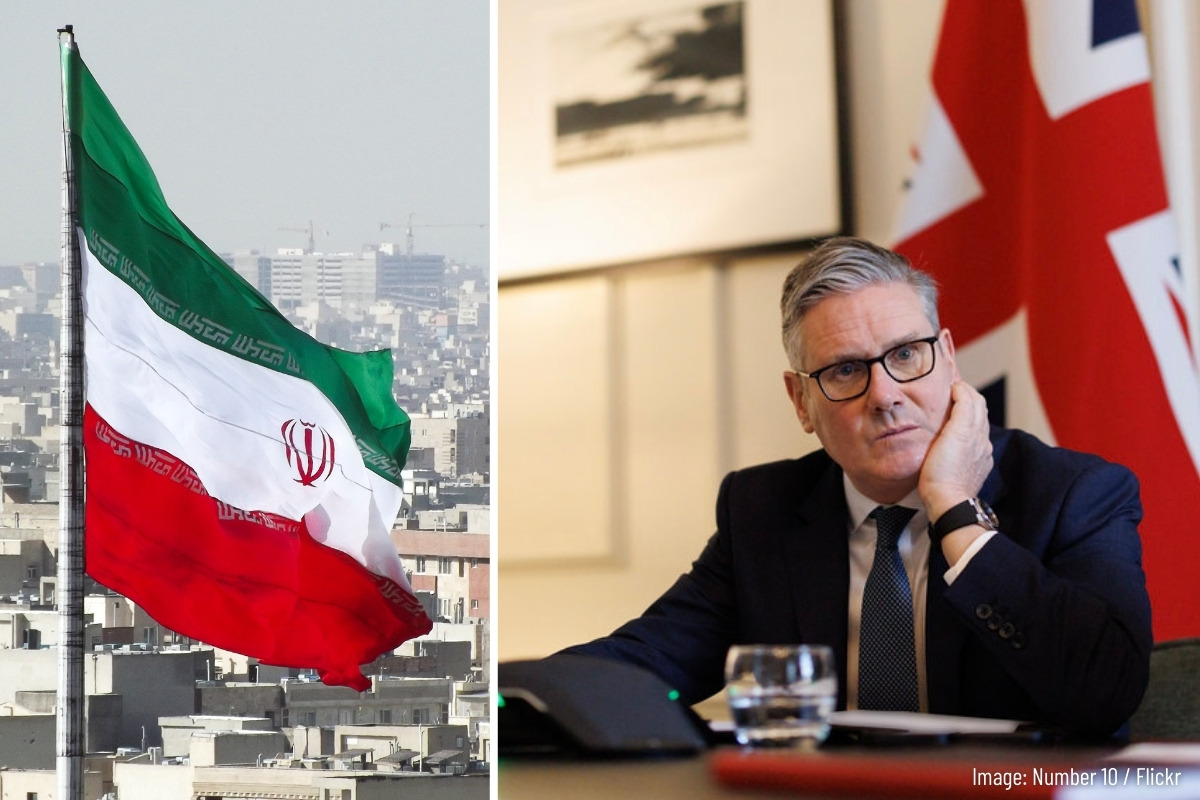The mouthpieces of the Establishment are now giving open advice to the Blairites as to how to split the Labour Party. The ruling class wants a “Second XI” of big business to replace the discredited Tories, but Corbyn and the mass of Labour members stand in the way of this plan. The labour movement must wake up to these plots being hatched.
The Financial Times is not read by workers. It is a big business paper read by business people and those who run the country. The paper employs top journalists, whose job it is to discuss what is best for capitalism; to feed the ruling class with ideas and tactics.
Yesterday’s paper (4th July) featured a very interesting article by Janan Ganesh. While Mr Ganesh is not always that sharp, on this occasion he articulates very well the problems faced by the capitalist establishment in the Corbyn Labour Party, which they do not like in the slightest.
Ganesh goes straight to the point: how is it best to split the Labour Party without making the mistakes of the SDP split in 1981 which ended in failure? “Today, even MPs of a Jenkins-ite bent curse the infidelity and any prospect of a repetition”, says our learned sage.
Ganesh openly reveals the plans of the establishment and their cronies: “They need to remove him (Corbyn), install someone much better and purge the zealots who have changed the texture of Labour’s grassroots for the worse over the past year. The first of these goals is do-able; the second is not because the third is so hard.”
The aim is to remove Corbyn then destroy the “zealots”, namely the radical membership, and re-impose the rule of the right wing. Despite the fact that 80% of Labour MPs voted no confidence in Corbyn, the Labour leader is staying. Even if he resigns, another left may stand and win. “That could be enough to finish the party”, he says.
But even if they succeed in preventing a left leader, “the new leader will have to be a difference-splitter who squares the parliamentary party with the bolshie members and the conflicted trade unions.”
“By all means, Labour MPs must try to remove Mr Corbyn and replace him with a plausible prime minister. But if the mission fails, political logic and the national interest both argue for a breakaway.”
This might unfold as follows, states our Financial Times commentator. “The 170-plus MPs who repudiated their leader last week would resign the Labour whip and sit as a new party of the pro-European centre left under leadership of their choosing. As the largest non-government group in the House of Commons, they would constitute the new official opposition, with all the privileges that entails. If Mr Corbyn’s residual Labour had fewer MPs than the Scottish National party’s 54, its struggle for visibility would be hopeless.
“From its parliamentary base the new party would try to recruit members in the country. Since the referendum, the most dispossessed voters have been the 16m who wanted continuity. If the party persuaded one in 100 of them to pay a nominal subscription, it would outnumber the Tories. Moderate Labour activists and staff would defect. Business donors, if not unions, would have an incentive to sustain the project in its precarious infancy.
“The Liberal Democrats would be invited to merge or associate. With only eight MPs, they would be myopic churls to refuse.
“The hard left would keep the Labour name and infrastructure, but these earthly things matter less than credible policies and people. The new party would have those. Instead of 200 simultaneous by-elections, it would stand at the next general election and ask the new prime minister, who will be chosen by just 150,000 Tories in the coming weeks, to hold it as soon as possible.”
Unfortunately, says Ganesh, “The trauma of Limehouse has paralysed Labour moderates. But if they are going to be cowed by history, they should get that history right. In the end, the SDP won, and won big. The past four prime ministers — John Major, Tony Blair, Gordon Brown and David Cameron — have tried to blend a free economy, a substantial state, cultural looseness and EU membership. [Roy] Jenkins [leader of the SDP] sensed where the country was going, just too early. Last month’s eruption has broken his consensus but it still commands half of Britons. A new party must speak for them.”
Could you be any clearer or more cynical than that? It is time the whole Labour movement woke up to this plot by big business and the Blairites to split the Labour Party.
By Rob Sewell
The Financial Times is not read by workers. It is a big business paper read by business people and those who run the country.
The paper employs top journalists, whose job it is to discuss what is best for capitalism; to feed the ruling class with ideas and tactics.
Yesterday’s paper (4th July) featured a very interesting article by Janan Ganesh. While Mr Ganesh is not always that sharp, on this occasion he articulates very well the problems faced by the capitalist establishment in the Corbyn Labour Party, which they do not like in the slightest.
Ganesh goes straight to the point: how is it best to split the Labour Party without making the mistakes of the SDP split in 1981 which ended in failure? “Today, even MPs of a Jenkins-ite bent curse the infidelity and any prospect of a repetition”, says our learned sage.
Ganesh openly reveals the plans of the establishment and their cronies: “They need to remove him (Corbyn), install someone much better and purge the zealots who have changed the texture of Labour’s grassroots for the worse over the past year. The first of these goals is do-able; the second is not because the third is so hard.”
The aim is to remove Corbyn then destroy the “zealots”, namely the radical membership, and re-impose the rule of the right wing. Despite the fact that 80% of Labour MPs voted no confidence in Corbyn, the Labour leader is staying. Even if he resigns, another left may stand and win. “That could be enough to finish the party”, he says.
But even if they succeed in preventing a left leader, “the new leader will have to be a difference-splitter who squares the parliamentary party with the bolshie members and the conflicted trade unions.”
“By all means, Labour MPs must try to remove Mr Corbyn and replace him with a plausible prime minister. But if the mission fails, political logic and the national interest both argue for a breakaway.”
This might unfold as follows, states our Financial Times commentator. “The 170-plus MPs who repudiated their leader last week would resign the Labour whip and sit as a new party of the pro-European centre left under leadership of their choosing. As the largest non-government group in the House of Commons, they would constitute the new official opposition, with all the privileges that entails. If Mr Corbyn’s residual Labour had fewer MPs than the Scottish National party’s 54, its struggle for visibility would be hopeless.
“From its parliamentary base the new party would try to recruit members in the country. Since the referendum, the most dispossessed voters have been the 16m who wanted continuity. If the party persuaded one in 100 of them to pay a nominal subscription, it would outnumber the Tories. Moderate Labour activists and staff would defect. Business donors, if not unions, would have an incentive to sustain the project in its precarious infancy.
“The Liberal Democrats would be invited to merge or associate. With only eight MPs, they would be myopic churls to refuse.
“The hard left would keep the Labour name and infrastructure, but these earthly things matter less than credible policies and people. The new party would have those. Instead of 200 simultaneous by-elections, it would stand at the next general election and ask the new prime minister, who will be chosen by just 150,000 Tories in the coming weeks, to hold it as soon as possible.”
Unfortunately says Ganesh, “The trauma of Limehouse has paralysed Labour moderates. But if they are going to be cowed by history, they should get that history right. In the end, the SDP won, and won big. The past four prime ministers — John Major, Tony Blair, Gordon Brown and David Cameron — have tried to blend a free economy, a substantial state, cultural looseness and EU membership. [Roy] Jenkins [leader of the SDP] sensed where the country was going, just too early. Last month’s eruption has broken his consensus but it still commands half of Britons. A new party must speak for them.”
Could you be any clearer or more cynical than that? It is time the whole Labour movement woke up to this plot by big business and the Blairites to split the Labour Party.






